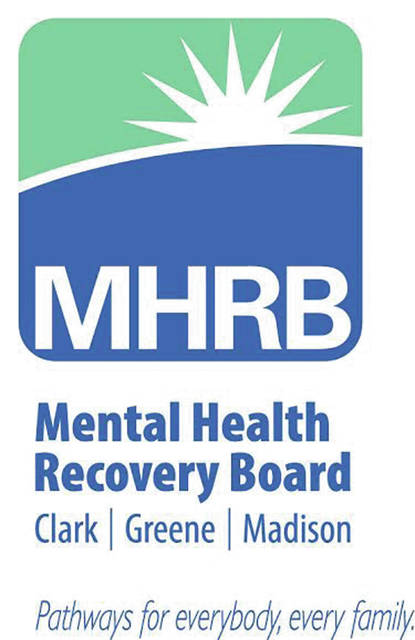
SPRINGFIELD — Throughout September, Mental Health Recovery Board of Clark, Greene & Madison Counties (MHRB) is leading a statewide campaign to raise awareness of suicide risks and prevention.
The campaign, titled “#JustAsk,” focuses on overcoming cultural and social stigma surrounding discussion about suicide. As part of an annual observance of National Suicide Prevention Month, MHRB is providing participating public health organizations, health and behavioral health providers, news outlets and members of the public with access to an informational and marketing toolkit to help initiate important conversations around suicide prevention.
“Suicide is a silent killer in the United States. Although it’s the second leading cause of death for people ages 18 to 34, Americans are still not comfortable talking openly about suicide,” said Dr. Greta Mayer, CEO of MHRB. “The way COVID-19 has changed our lifestyles is exacerbating stress factors and disrupting our normal coping mechanisms. These are worrying signs that suicide may be another epidemic we will face in the future, unless we take action now.”
According to MHRB officials, last November the Ohio Department of Health released a report indicating a 45 percent increase in Ohio’s suicide rate between 2007 and 2018. Among youth ages 10-24 during the same time period, suicide deaths increased by a staggering 56 percent. The CDC reported that between 1999 and 2018, the national suicide rate increased by 35 percent, from 10.5 people per 100,000 to 14.2. In real terms, more than 48,000 people died by suicide in 2018 alone. In Ohio that same year, the suicide rate was 15.2 per 100,000 people, exceeding the national average and accounting for 1,836 suicide deaths overall.
Mayer cautioned that the number of deaths likely is an underestimate and does not fully describe the scope of the suicide crisis. The impact of suicide includes the 10.7 million American adults who seriously contemplated suicide, 3.3 million who made a suicide plan, and 1.4 million who attempted suicide, according to the CDC, as well as the fallout experienced by affected friends, colleagues, and family members.
The #JustAsk suicide prevention campaign seeks to prevent suicide through encouraging people to reach out to loved ones, have open conversations about mental health, and to learn more about suicide risk factors and prevention methods. The campaign focuses on removing stigma so that people can feel empowered to ask others directly if they are considering suicide and helping them connect to professional care.
“Contrary to popular belief, talking about suicide in direct terms does not encourage or inspire a person to kill themself. A person who is suicidal often shows signs of distress and is likely already considering suicide before the word itself comes up in conversation,” said Mayer. “Just asking a simple, direct question to loved ones — ‘Are you thinking about killing yourself?’ — can be enough to interfere with their tunnel vision, acknowledge their emotional pain and introduce them to an alternative way of coping.”
Included in the toolkit are social media graphics and sample posts with the campaign’s hashtag, a guide to statewide and local suicide loss and prevention resources, and links to national suicide prevention toolkits. The toolkit now is available on the MHRB website, www.mhrb.org.
Anyone experiencing a crisis can receive immediate help by calling the National Suicide Prevention Lifeline at 1-800-273-8255 or through Crisis Text Line by texting 4HOPE to 741-741. In the event of an emergency, call 911.
For more information about mental health and substance use resources in Clark, Greene and Madison counties, visit www.mhrb.org.


